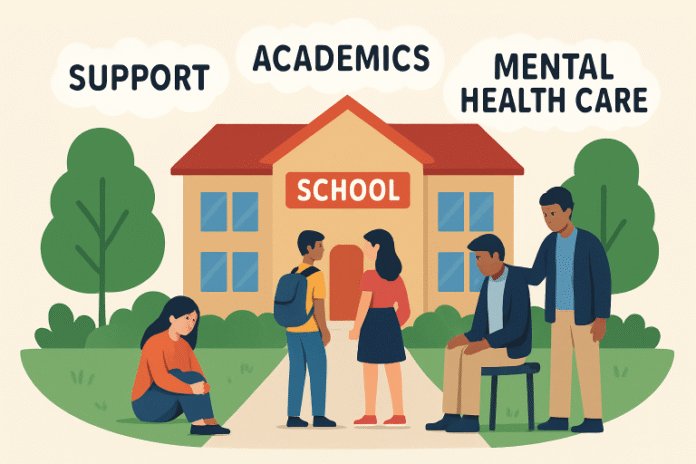Table of Contents
Key Takeaways
- Therapeutic boarding schools offer a blend of education and mental health support for adolescents struggling with behavioral and emotional challenges.
- These specialized environments can foster healing, build resilience, and encourage academic progress through structured programs.
- Research highlights the potential benefits for adolescents who may not thrive in traditional school settings.
- Choosing the right school requires attention to credentials, therapeutic methods, and evidence-based practices.
Why Choose a Therapeutic Boarding School?
Adolescents facing complex emotional and behavioral issues often need solutions beyond what traditional schools and outpatient programs can offer. For families seeking a more comprehensive approach to support and growth, therapeutic boarding schools present a unique blend of academics, structure, and mental health care tailored to individual needs. These schools stand out due to their immersive environment, consistency, and round-the-clock access to specialized support, making them a valuable alternative for teens who are not thriving in standard educational or home environments.
At telos.org, families find a clear example of how therapeutic boarding schools combine evidence-based therapeutic strategies with accredited academics in a safe, nurturing setting. The integration of therapy with daily life and schooling lays the groundwork for lasting change, helping students regain confidence, improve relationships, and develop healthy coping mechanisms while continuing their academic journeys.
Key Components of Therapeutic Programming
Therapeutic programming is the foundation of successful therapeutic boarding schools. It involves individualized plans, group counseling, and family involvement to foster holistic treatment. Trained staff, including licensed therapists, teachers, and residential life mentors, create a structured environment for students to grow. These schools also offer academic programs aligned with state or national standards and life skills training. The structure provides stability and open communication between staff, students, and families, allowing for close monitoring of progress and needs.
Research-Supported Benefits
Research shows that therapeutic environments positively impact adolescent mental health, especially those with anxiety, depression, trauma, or behavioral disorders. Integrating mental health support into school days improves emotional regulation, fosters resilience, and enhances academic performance. Therapeutic boarding schools address underlying issues, promoting sustainable growth through cognitive behavioral therapy, experiential therapy, and trauma-informed care. Graduates report stronger self-esteem, better relationships, and improved goal-setting abilities.
Common Challenges and Considerations
Choosing a therapeutic boarding school is a crucial decision that requires thorough research, including accreditation, staff credentials, and treatment philosophies. Family involvement, transparency, and evidence-based practices should be prioritized. It’s crucial to avoid isolation if the program doesn’t balance structured care with everyday adolescent experiences. Families should seek schools prioritizing ethical practices, fostering a sense of belonging, and maintaining open communication.
The Future of Adolescent Mental Health Support
Therapeutic boarding schools are adapting to adolescent psychology developments, mental health care advancements, and public awareness of early intervention. Programs integrate scientific findings, trauma-informed approaches, and comprehensive family support to improve student outcomes. National organizations emphasize evidence-based care and staying updated on best practices. Therapeutic schools aim to increase accessibility, reduce stigma, and integrate with community resources as societal attitudes shift towards mental health.
Summary
Therapeutic boarding schools play a crucial role for families whose teens face behavioral and emotional challenges that have not responded to traditional approaches. These schools can foster healing and resilience through the careful combination of structured academics, individualized therapeutic support, and life skills development. With thorough research and a focus on evidence-based care, families can select programs that offer hope and guidance toward a healthier, more fulfilling future for their adolescents.
Apart from that if you want to know about “The Goals of Individual Therapy With Charlie Health” then please visit our Health Category.























